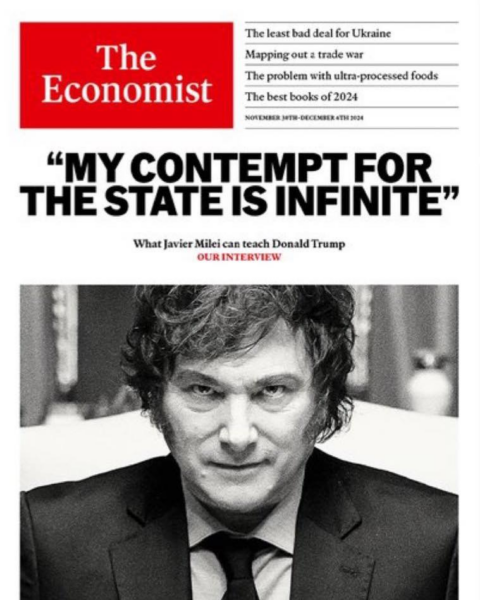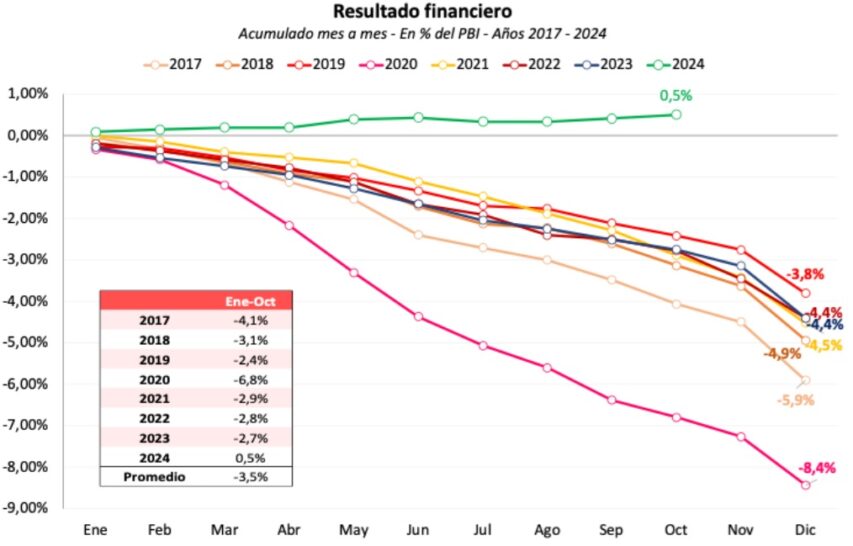In the Washington Examiner, David Harsanyi checks the current state of Argentina against the doom-and-gloom predictions from the start of Javier Milei’s term:
In the days leading up to the August 2023 presidential election in Argentina, a hundred “leading” economists from around the world, including progressive favorite Thomas Piketty, published an open letter warning that “radical right-wing economist” Javier Milei would inflict “devastation” and social chaos on his country.
However, they said it like it was a bad thing.
By the time Milei unexpectedly won the presidency, Argentina, once one of the wealthiest nations in the world, had a poverty rate of over 40% and the third-highest inflation rate in the world. After decades of Peronism, a toxic melding of fascism, socialism, and unionism, the nation bankrupted its central bank, and the peso was depreciating at warp speed. Do you think your mortgage rate is bad? Interest rates hit 118% in Argentina weeks before the election. The country was on its way to becoming another Venezuela. Milei wanted to blow it up.
After Milei’s unlikely victory, political scientist Ian Bremmer warned, “Economic collapse is coming imminently”. Felix Salmon, the chief financial correspondent at Axios, argued that Milei’s policies would plunge Argentina into “a deep recession”.
Seven months later, Argentina was out of a recession that had set in before Milei’s victory. The chainsaw-wielding economist, “el Loco” to friends, followed through on his promise of “shock therapy”, prioritizing taming inflation by cutting spending and deregulating the economy.
Almost all problems in modern Keynesian fixes are prominent features of governance in the modern West. Governments are always bragging about spending their way out of economic tribulations (tribulations they usually instigate). If a person suggests that free-market economic policy would have been more beneficial in the long term, they are forced to rely on a counterhistory. This is one reason why lots of elites are rooting against Milei, who argues that most of the West’s economic ills lie in Keynesian economics. They want him to fail.
As we all know, most panic-inducing cases of “austerity” are just minuscule reductions in the trajectory of spending growth. Not Milei’s plan, which entailed shutting down 13 government agencies and firing over 30,000 public workers — around 10% of the federal workforce. That is an unrivaled political revolution. Argentina’s federal budget was reduced by 30%. Even if the Department of Government Efficiency accomplished everything Elon Musk and Vivek Ramaswamy are talking about doing, they wouldn’t come close to 3%, much less 30%, in spending cuts. There has likely been no comparable austerity program in any Western economy.
By May 2024, Argentina recorded its first quarterly budget surplus since 2008. Inflation, still high, dropped from a debilitating 25% at the end of 2023 to 2.4% by the end of 2024. Per capita salary, having plunged, is now also recovering.
Dan Mitchell agrees that it’s easy to mock economists for their hair-on-fire reaction to Milei’s election:
Consider the supposedly prestigious left-leaning academics who asserted in 2021 that Biden’s agenda was not inflationary. At the risk of understatement, they wound up with egg on their faces.1
Today, we’re going to look at another example of leftist economists making fools of themselves.
It involves Argentina, where President Javier Milei’s libertarian agenda has yielded amazingly positive results in just one year.
- Dramatic lowering of inflation.
- Big reductions in the burden of government spending.
- Rapidly achieving a balanced budget.
- Reductions in poverty.
- Rising levels of household income.
Some of us knew that good policy would lead to good results.
Others, like the editors at Bloomberg, perhaps did not expect such a quick turnaround. But, to their credit, they just acknowledged the amazing progress in an editorial.
The U.K.-based Telegraph leans to the right, so this headline can probably be interpreted as a victory dance.
1. The bad monetary policy that led to rapidly rising prices actually began under Trump in 2020 and was continued by Biden in 2021.






